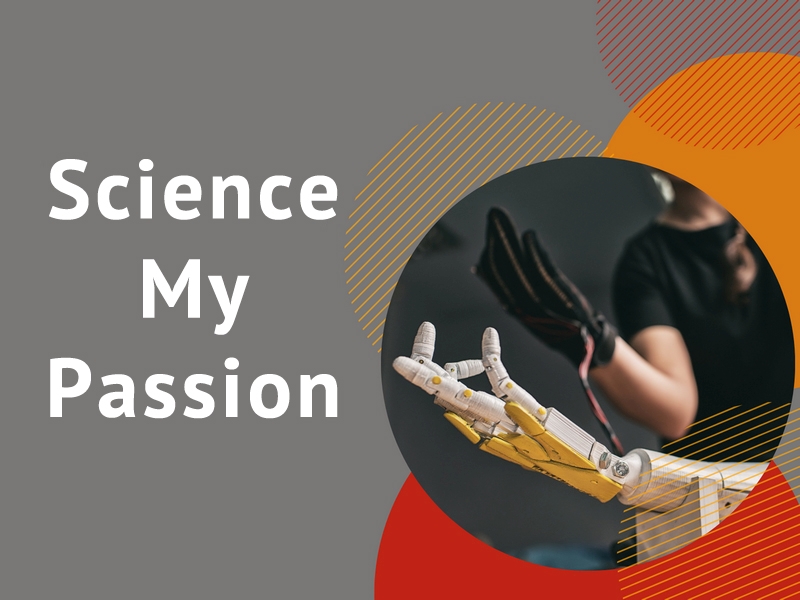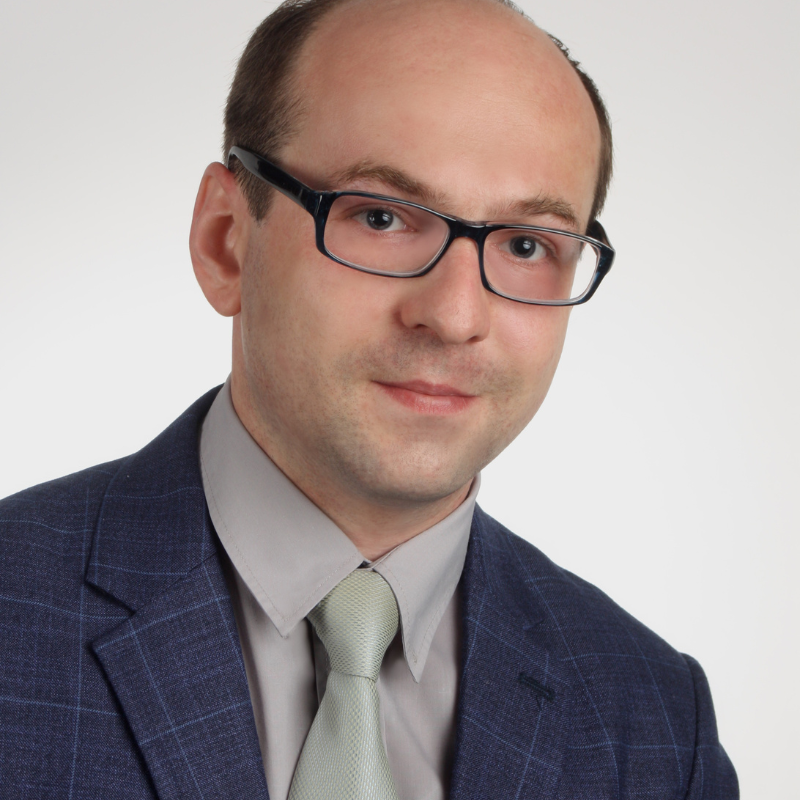Analytical Chemistry
Oxford English Dictionary defines analytical chemistry as ‘the branch of chemistry concerned with the identification and measurement (by chemical or instrumental means) of the constituents of a substance, or of particular components (e.g. contaminants) within it.’ As per the author, analytical chemistry is our future. It plays a significant role in various areas, e.g. food safety, forensics, medicine, fine arts, archaeology, space research, clinical diagnosis, quality control, pollution monitoring and control, medical trials, clinical research, or geology. And it does not end there. Read how fascinating of a discipline it is.
SCIENCE | MY PASSION
Merriam-Webster defines science as ‘knowledge or a system of knowledge covering general truths or the operation of general laws especially as obtained and tested through scientific method.’
Naturally, science often involves the activities of learning or teaching.
Read the article in the Science My Passion series, where our researchers present their work and show how spellbinding science and the research process are
Chemistry – a twist of fate or a touch of love?
In hindsight, choosing chemistry to be one of the most important aspects of my life has been somewhat of a twist of fate. I’ve dreamt about discovering new things since I remember. When I was a kid, I wanted to become an archaeologist. Of course, I changed my mind in secondary school, where I was leaning towards medicine. All in all, it was always the exact and natural subjects that were my strong suit – maths, physics, chemistry, and biology. However, I had always been most fond of physics.
Chemistry at the University
I started studying chemistry in 2007 at Jagiellonian University’s Faculty of Chemistry; it was an interim step before getting into the medical field. The decision to choose chemistry over physics was completely random; to this day, I cannot answer the question of why exactly I started studying chemistry instead of physics, the subject very close to my heart. What was supposed to be an interim step has given me so much joy that I decided to pursue chemistry, with a particular fondness for its analytical aspects and all that is related to them. During my 1st cycle studies, I was engaged in forensic chemistry. I also wrote a thesis on that topic; it concerned lab-on-a-chip device applications in the analysis of explosive residues. During my 2nd cycle studies, I decided to pursue the aspect of environmental analyses and automation of analytical procedures using new methodology approaches based on analytical calibration to improve the quality of analytical results.
After I graduated from the Jagiellonian University’s Faculty of Chemistry, I started doctoral studies at the Polish Academy of Sciences’ Institute of Catalysis and Surface Chemistry, where I dealt with several topics related to the research on heritage objects in cooperation with the Laboratory of the National Museum in Krakow.
PhD in Chemistry
My love for the subject matter I was learning during my Master’s degree studies made me come back to Jagiellonian University’s Faculty of Chemistry; I pursued research in flow injection analysis and analytical calibration. Here, I would like to express how grateful I am to my supervisor, Prof. Paweł Kościelniak. All I’ve learnt is still useful!
During my doctoral studies, I managed to complete a few research fellowships, including at Charles University in Prague, Dublin City University, the University of Valencia and the University of Porto. Each destination gave me a chance to carry out intriguing research and significantly enrich the doctoral dissertation I defended in 2017. It has been awarded for introducing the principles of metrology in chemical measurements by the Polish Academy of Sciences’ Committee of Analytical Chemistry and the LGC Standards company. In the meantime, I managed to complete the Interdisciplinary PhD Studies Society–Environment–Technology in English at Jagiellonian University, and Master’s degree studies in Chemical Technology at the AGH University of Science and Technology.
Professional Work in Chemistry
I defended my PhD right before Christmas, and I was quite apprehensive about my future. Although my desire to continue my research work was strong, the necessity of finding any job made me search and send out my resumé to every company, even those not related to chemistry. It was pure coincidence, and the grapevine, that I received an email about a call for proposals for a postdoc position at the Polish Academy of Sciences’ Institute of Pharmacology. All the documents were prepared and sent the day after. I was invited for an interview after some time, and it turned out that I managed to win the call. Suddenly, I was working in a completely new field concerning the pharmacological properties and neurotoxicity of new NBOMe derivatives. Being assigned to Prof. Gołembowska’s team, I was able to get experience in chromatography, a technique I deal with currently. Thanks to the professor, I’ve learnt many practical aspects of research involving separation techniques in neurochemistry. Back then, I did not suspect that chromatography would become one of the main techniques in the future. But I will get back to it.
After a year at the Institute of Pharmacology, the next stop on my scientific adventure was the Jagiellonian Centre for Experimental Therapeutics. I was a part of Prof. Kamilla Małek’s team; I was working on developing SERS-based sandwich immunoassays for the detection of markers of inflammatory state on the example of IL-6. The experience has given me a chance to gain insight into the world of sensors, assays, spectroscopy, and immunology, with analytical chemistry coming in handy at all stages.
It is only natural that every project eventually comes to an end, and to top it all off, dark clouds were looming over the world, for the Covid pandemic was spreading like wildfire. It was again at the last minute that I learnt there was a vacancy for the position of assistant professor at the University of Silesia. The documents were sent just before the deadline. After I was invited for an interview, I encountered another obstacle – getting from Kraków to Katowice. Although buses have been cancelled, I was fortunate enough to somehow reach the Rectorate and be interviewed. Afterwards, my wife and I had a few days to consider moving to Katowice. In the end, we moved to Silesia in July 2020.
Scientific Work in Chemistry
I’m currently working at the Faculty of Science and Technology’s Institute of Chemistry, where I deal with chromatography. I’ve been an independent researcher for over a year now. In general, chromatographic techniques in chemical analysis are an effective method for separating and identifying compounds of complex mixtures and detecting their concentration even at extremely low levels. In my research—apart from seeking answers to various analytical problems—I attempt to develop new methodological approaches based on calibration to improve the precision of analytical results and eliminate interference factors. Although I need to cope with rather obsolete equipment that often won’t listen to me and relatively low financial resources for research, I’ve managed to accomplish a few interesting achievements during my employment.
I received funding for research within two calls for proposals: 1st and 3rd editions of the Freedom of Research by the University of Silesia (Research Excellence Initiative) and MINIATURA by the National Science Centre. I’ve also completed an inspiring research fellowship at the Foodomics Lab, Institute of Food Science Research, Madrid. I’ve also published a few articles in respected journals: Journal of Chromatography A, Topics in Current Chemistry, Critical Reviews in Toxicology, Journal of Hazardous Materials, Measurement, International Journal of Molecular Sciences, Microchemical Journal, Microchimica Acta and Heritage Science.
As an academic, I value contact with students, and teaching classes is a fascinating experience. What I also find important is the opportunity to grow by taking part in scientific conferences and research fellowships. I also learn a lot through my activities as a reviewer. In 4 years, I’ve reviewed over 230 papers. However, there are several failures behind every success. For example, winning one grant means that some of your other projects have been rejected. The same applies to articles; if you manage to have one published, most certainly have you seen a few rejected. Work at a university is very unusual, and I must agree with J. Fraser Stoddart, the Nobel Prize winner, who said that a scientist should have ‘the hide of an elephant’. One should not give up despite the adversities, and one should not worry about people who are just waiting for you to stumble.
Analytical chemistry has always fascinated me and most surely will continue to fascinate me because it intertwines with other scientific fields. It plays a significant role in various areas, e.g. food safety, forensics, medicine, fine arts, archaeology, space research, clinical diagnosis, quality control, pollution monitoring and control, medical trials, clinical research, or geology. And it does not end here.
Although I have a busy schedule, I’m doing my best to find time for my hobbies. I like to immerse myself in popular science literature. I also enjoy sports, especially football. I’m fond of long walks, sightseeing and culinary tourism. I am a proud owner of a collection of a few thousand postcards. And I’m interested in astronomy and medicine as well.
Next Stop: Chemistry?
Although I’ve dealt with various things throughout my career, I can certainly call myself an interdisciplinary analytical chemist. Each place I landed in—usually by a twist of fate—gave me opportunities to learn something new and meet incredible people I still keep in touch with and who have been an inspiration to me. This experience allows me to grow and conduct research related to analytical chemistry in various aspects: food research, biosensors, pharmaceutical and biomedical analyses, microcircuits for chemical applications and much, much more. Currently, I’m fully focused on my work at the USil Institute of Chemistry and doing research in the area of separation techniques. Silesia is a delightful stop on my scientific journey and in life. Is it my final one? I don’t think so. It’s hard to tell where I’ll end up in the future doing what, but I am more than sure that I won’t be bored.







